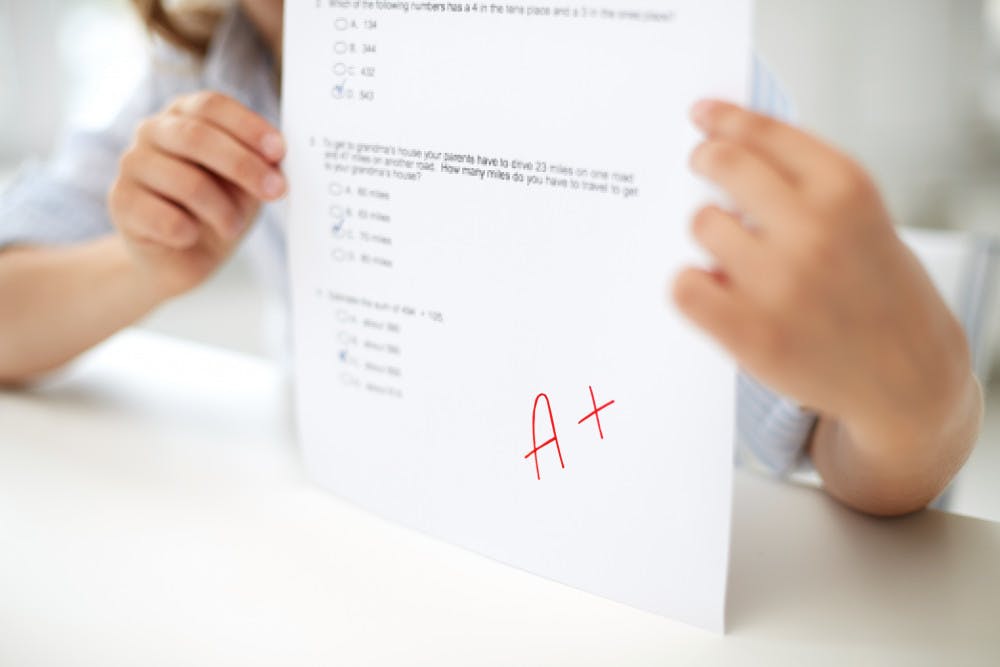By Ian Krietzberg
Managing Editor
After a challenging semester spent online in the midst of a raging pandemic, the College, despite a Change.org petition that has garnered nearly 2,000 signatures, reaffirmed its position today against an ungraded option for the fall 2020 semester.
Spurred by calls from students to reconsider this policy, the Steering Committee instructed the Committee on Academic Programs (CAP) to review the potential for another ungraded policy, similar to that which was implemented in the spring 2020 semester.

“The campus testimony confirmed that students have experienced additional stress in Fall 2020, challenges understood by the faculty, staff and administration,” Jeffrey Osborn, the Provost and VP for Academic Affairs, said in an email to the community this morning.
Through input from students, faculty and staff, CAP found concerns with extending the spring pass/fail policy, which includes “fairness to students who have already withdrawn from courses,” as well as access to all students and the possibility of adverse consequences for students currently enrolled in prerequisite courses.
Osborn continued, “From the totality of testimony and analyses, CAP concluded that an extension of the spring 2020 policy would not serve students well overall and could not be applied fairly to all students this late in the semester.”
Instead of adopting an alternate grading option, the College is extending the period of course or semester withdrawal to Jan. 12, 2021.
After an analysis of withdrawal rates, mid-term progress reports, and the spring 2020 policy, CAP found that the data was similar to that from fall 2019, which led them to believe that students “were not struggling academically this semester,” according to Osborn.
This equivalency has sparked student outrage in the form of social media posts, emails to the administration and a sense that the College is not looking out for them during the pandemic.
“I am honestly disgusted by the way TCNJ handled this situation,” said Jordan Kadish, a junior psychology major.
Kadish feels that this decision exemplifies a lack of empathy from top administrators to students at the College.
“TCNJ has shown in so many instances that student mental health is not a top priority, and this is just the icing on the cake,” Kadish said.
Bianca Camano, a junior psychology major, reached out to her professors in hopes of leniency in the face of challenging familial circumstances.
“Two of my professors suggested taking an incomplete grade, which would essentially extend my deadlines for the semester,” she said. “I had no idea this option was even available, and while it’s become a huge help, the College and administration has done a terrible job of offering help to students that are struggling. It just goes to show you how little they care about students being given an honest and fair shot at succeeding.”
Jeff Blanda, a junior computer engineering major, expressed the logical flaws in extending the withdrawal period through to January.
“The whole point of offering withdrawals is to alleviate course work in the beginning of the semester,” he said. “If it made sense to pass/fail last semester, why doesn't it this semester?”
While the College is not alone in this decision, many other universities have already employed an alternative grading option for the fall 2020 semester, including Rutgers University, Rowan University, Johns Hopkins University, Colombia University, the University of Virginia and more.
“It’s unreasonable for TCNJ to not implement a pass/fail option for its students when Johns Hopkins University, the leading researcher on COVID, is doing pass/fail this semester, knowing the difficulties students face,” said Brandon Schoch, a sophomore economics major at the College.
Emily Prendergast, a junior english literature and philosophy double major, cites the fact that students who withdraw from a class will still need to re-enroll in that class for credit, essentially creating a situation where students could be paying twice for one class.
“That email appears to be an attempt at making it seem like they are helping students, while they are really not doing anything except putting students in a position where they would have to decide if they want to pay for another class or take a bad grade,” she said.
This leaves Prendergast and other students wondering if administrators have ulterior motives regarding this issue, after a bleak semester of loss and forced adaptability.
“While some students may be doing better academically this semester, that doesn’t mean that they are not putting their mental health on the back burner in order to do so, while working 30 hours a week in order to stay financially stable, while dealing with constant anxiety over the thousands of deaths a day in a global pandemic,” said Kadish.







